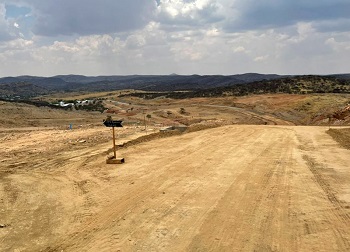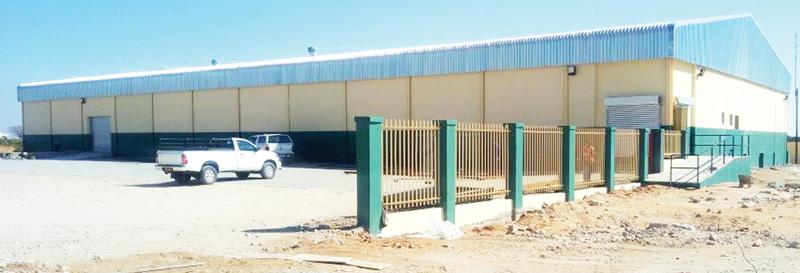
Serviced land is a vital pillar for economic growth and activity – Inkumbi

Serviced land is a vital pillar for economic growth and activity, stated Development Bank of Namibia Chief Executive, Martin Inkumbi, when he launched the Auasblick Extension 1 residential development, a public private partnership (PPP) between Sinco Investments Sixty-One and the City of Windhoek.
Executive Chairman of the Hangala Group and Chairman of Sinco Investments Sixty-One, Dr Leake Hangala, advised that 80% of phase 1 had been pre-sold and that pre-sales for phase 2 would start in November 2022. He urged Namibians to make use of this fantastic opportunity to secure their piece of land in Namibia. He said: “Our objective is the creation of a vibrant new community in our beloved city. I want to re-emphasise that word “community”—because this project has been a single-mindedly progressive undertaking informed by a vision of a greener Windhoek of the future. Buyers are free to develop their erfs with maximum flexibility: there will be no cookie-cutter homogeneity in this neighbourhood. Auasblick Extension 1 has also been laid out with not only car owners but also pedestrians in mind, with ample trees, biking lanes, and open spaces. We are proceeding with plans to maximize the online connectivity of residents, and generally to cater for the way the next generation of city-dwellers will want to live and work.”
Inkumbi said commercial lenders mainly focus on financing top structures, which consist of housing units that fall either in the affordable or higher-end segments of the market. There is often a shortage of lenders willing to finance the development of bulk land infrastructure, and this is the gap DBN aims to fill.
Lack of serviced land, he said, hampers the progression of home ownership and socio-economic well-being, as well as capital formation in families. The presence of serviced land is not just an asset accounted for in the present. It represents the promise of prosperity and economic activity for the future.
Firstly, Inkumbi explained, serviced land and houses can be used as collateral for businesses that are financed. Lack of sufficient collateral is an ongoing challenge in the development of the Namibian enterprise ecosystem. By making serviced land available, the entire private sector economy is enhanced.
Secondly, land and houses have a value that can be transferred between generations, as an intra-generational transfer of wealth.
Thirdly, Inkumbi said, serviced land appreciates. This appreciation of value can be redeemed through resale.
He said all income brackets benefit from land ownership, proportionately to the value of the land. Thus smaller parcels of land with a lower value can be used as collateral for smaller enterprises, while land with a higher value can be used as collateral for larger enterprises. The need for serviced land in higher income brackets is an often overlooked facet of enterprise financing.
He pointed out that Development Bank plays an active role in finance and stimulus for land servicing. In this case, the bank has approved finance of N$76,855 million for bulk infrastructure for phase one of the Auasblick extension, consisting of 281 erven.
Inkumbi said the bank is ready and willing to finance land development projects across Namibia, either by financing private developers, local authorities and or through the Bank’s PPP model. He invited property developers to make contact with the bank.













































